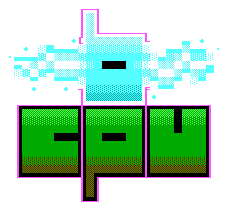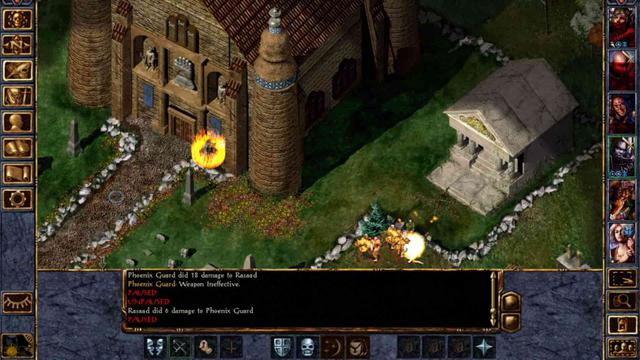
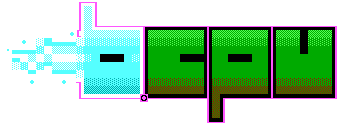
It's the first blog post of 2020, so I thought I'd make it a fun one, about a topic that has interested me for a long time: CRPGs and what makes them great!
I've played quite a few computer-roleplaying-games in my time, but in the last couple of years I've really put in the hours on a number of titles on different platforms. Some are very new, others are classics but all of them share some aspects that make them standout amongst the crowd. I'm going to look briefly at these, think about games I will and won't play in the future and what might be the secret ingredient to a compelling CRPG.
Let's define the terms. JRPGs won't be covered here, largely because I believe they are too removed from what I believe a roleplay game is - an automated dungeon master that allows you to play a role. In the case of games like FFVII the roles are given to you and the story can only go one way (this is different to plot as we shall see later). As any good dungeon master will tell you, it's more fun when the players throw you curve balls and you manage to improvise around it. A CRPG should make you feel the same way. Most RPGs give you choices on how to resolve plot points and considerable customisation of your character.
Although I say Computer roleplay games, some of the ones I cover here are on console or phone, but they all started off life on a computer. I feel that computer games offer a bit more experimentation than a console would, though some titles have made the jump with aplomb! Let's take a look at some that I've played in the last couple of years.
There are no spoilers in here; I've done the best I can to keep the stories a secret in case you want to play them.

Ah yes, a classic title from 1998. Black Isle and BioWare at their finest! This game sold gangbusters upon release and is credited as revitalising the RPG genre. It's set in the Dungeons and Dragons Forgotten Realms and is perhaps the exemplar of the classic, Western RPG. Characters have classes, it's in a fantasy realm, magic is a thing, rats in the basement will be the first quest, it's in a roughly isometric view, etc etc. It's the 'Ur' example of this kind of roleplaying.
I played it briefly upon it's release but never got very far, as it was somewhat difficult for me at the time. I bought the enhanced edition for my phone a year or so ago, figuring I could play a bit here and there. I got much further this time around though the plot has enough depth that nipping in here and there for a quick 10 minutes is perhaps not the best way to get involved.
The story isn't too bad; it's a special destiny plot where the player character is the linchpin of the whole adventure. You can't really do this in a normal pen-and-paper Dungeons and Dragons game, so that's a point in it's favour. However, the last few dungeons are really time-wasting and the actual city of Baldur's Gate feels rushed and smaller than it should be, which is a real shame. Using a mine as a setting twice in the same game isn't too good either.
Baldur's Gate was followed by Baldur's Gate 2: Shadows of Amn. Beamdog, the company responsible for releasing the enhanced versions, created Siege of Dragonspear as an interim module between the two games. The second game is widely considered to be better than the first, though I've not played it.
There is an excellent review of the entire series by Noah Gervais over on youtube which you should totally watch if you want to know more, though there are spoilers. He describes Baldur's Gate as an 'automated dungeon master' and I think it's a fair assessment. But there's only so far you can go down this road, especially with 90s technology. I couldn't finish Baldur's Gate because I was ready to complete the story but silly game mechanics and time padding dungeons got in the way. I think the pacing got lost somewhere there. Shame, as it is a very good game.
Also THAC0 is still odd! :D
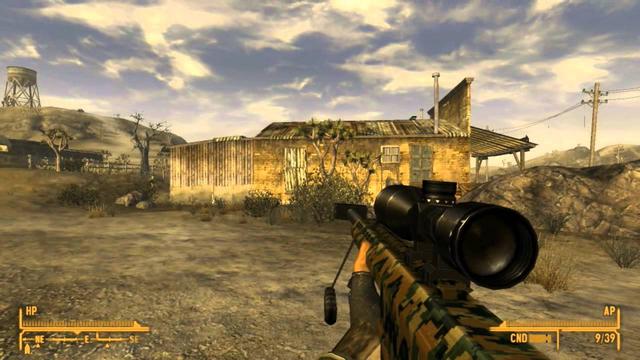
Fallouts 1 and 2 were brilliant. Troubled in production but great non-the-less; every RPG fan should play both! I'm a big fan it's fair to say. Fallout 3 I completed on my second playthrough but several years after it's initial release. It was shallow, with a poor plot, though the idea of moving from isometric to 3D was interesting. It's a shame the graphics were not quite there. The lack of decent shadows and the filter over everything played havoc with the contrast. The terrible conclusion of the plot and the general lack of player agency lead to a subpar experience. Fallout New Vegas aimed to fix that.
Steady yourselves now, as I'm about to voice an unpopular opinion. I don't think Fallout New Vegas is the best Fallout; I don't think it's as good as folks make out, but it is certainly better than Fallout3 and all it's DLC (and probably Fallout 4 as well, but we'll get to that).
I tried to get into New Vegas and right from the start, the problems with the graphics and the bugs hit hard. I can't blame Obsidian though. They were given almost no time to push this game out the door. I found the lack of decent shadows and detail made the desert landscapes incredibly plain. I'm fortunate enough to have visited the South West of America and something about the larger areas in New Vegas really rubbed me the wrong way. Particularly the areas inside the outer ring of New Vegas seemed empty and hollow.
Also, I want to know what the hell is going on with Caesar's Legion. I mean really, is that what they came up with? How many tanners are there in the desert to make all these leather skirts that I'm sure will protect you against a super-sledge or a bullet? It really blew my immersion; could they have not come up with a better visual style for the villain? Caesar himeself is apparently quite well written but I never got that far. By the time I was inside New Vegas, it all got a bit fetch-questy for my liking. With the bugs still occuring I decided there were better games to play.
I'm a tad bored of the USA South-west setting too. What else is going on in the Fallout world? Can we take a look at Russia, China or Europe instead? With the release of Fallout4 we got an even shallower experience than Fallout 3, with some sort of 'can robots be people' thing which feels a bit overdone. Fallout 76 has been an absolute skip inferno; a real blow to Bethesda who really didn't need anymore bad press.
All of this is a shame because my initial feelings on the game were good. The writing definitely is better, with a better plot and more interesting characters. Even in my short play-through, I quite enjoyed the smaller areas I came across. The addition of the hardcore mode was a big draw. Ammunition has weight, you need to sleep and eat and stay hydrated, guns and armour wear out faster. It's all good stuff that keeps you on edge, planning your forays into that radiated desert. I think this is where the game shines - giving that experience of being on the frontier.
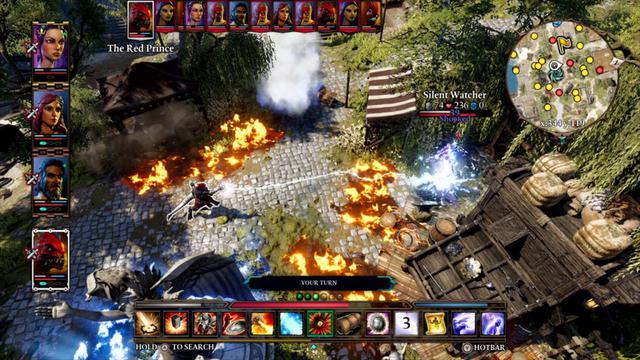
I've ploughed through a lot of hours with this game. It's very good indeed, but perhaps not as good as many folks would have you believe. I mentioned bugs in Fallout New Vegas, but the Mac version of DOS:2 is unplayable! It's almost criminal that Larian studios put this out as a viable product. That said, it really had something that kept me hooked. When the Switch version came out I thought I'd bag that version instead as it was likely to have fewer bugs, what with Nintendo looking over their shoulder. I'm glad I did.
DOS:2 has a 3D, third-person, high angle view; it plays the middle-ground between isometric and 3D. The graphics are beautiful and the small areas you play around in feel deep, with a lot of detail. There are always things to interact with, people to talk to and secrets to find.
Another thing that struck me was the voice acting, and the voiced narrator. Rather than animate or show everything, the narrator fills in these little details that get you really immersed. I'm a big fan of a voice narrator. Earlier games have done this too, but this is the first time I've experienced it.
The plot seems pretty good so far. I'm still playing through this one so I've yet to see how it ends. It's a long game but I've not felt bored whilst playing it - well, not very often anyway. The characters are quite interesting, though I'd like more interactions with them going along. Sometimes, when they interrupt you it can be quite fun to see where their conversations lead. More of that would have been great.
Where I think DOS:2 falls down is in the mechanics. You'll find leather gloves of more-numbers that are better than your metal gauntlets of arbitrary less numbers. Your super intelligent character won't act more intelligent - they'll just do more damage with their spells. I wanted to play an older, canny inquisitor type fighter; more a leader with upfront fighting mixed with cheeky skills like crippling blows, blind grenades and the like. It's turned out to be hard to do, and while DOS:2 allows you to reconfigure characters, only certainly builds seem to work. Cool-downs are a nice idea but it's a bit arbitrary. How does that fit into the story? Why can I not use one skill repeatedly? Arcanum, another game on this list, uses a stamina bar that goes down when you do anything, giving you the choice but linking it to your character. 'My cleric is too knackered and has keeled over from all the healing', makes more sense than 'I can't use this skill because the game says so, pick another'.
Fights seem to be a bit cheeky generally. I can't remember any fight I won first time, especially with a boss. You have to fail a few times to figure out the opponent. This breaks the story-telling and flow. It's particularly bad as some bosses ignore the rules and just cheat. I think this was done for the sake of challenge but it's not the best design. I like to think my character has some sort of precognition power and this is just how it plays out. I know lots of games do this too but compare this with Disco Elysium where failure is more ok and adds to the story. When I'm cheesing most of the fights, it feels wrong.
Skill checks seem to be not checks at all. You either have a high enough skill, or you don't. You can't seem to make these checks easier either, through events or specific choices (Disco Elysium fixes this as we shall see later). DOS:2 falls into the 'how do I get higher numbers so I can hit with more numbers' box. At the beginning, the idea of needing to create a shiv from sticks and stones was quite immersive but very soon, I forgot what gear I was carrying, so long as it had more numbers. Baldur's Gate did better in this regard I think as there were fewer types of things to equip but each one had some good background. I felt more connected to the character as a result. It's a real shame DOS:2 falls down here.
Nevertheless, DOS:2 really grabbed me and I'm still playing it. I don't quite know why. Despite the mechanics being a bit whack, the tactical nature of the combat is fun. Positioning your characters and planning the moves is something I quite enjoy. I'm not sure if I prefer turn based, or real-time-with-pause. Some fights in DOS:2 can take forever as you wait for enemies to make their moves but for the most part, you get time to think it all through, like a chess game. This is quite appealing. The story and characters are involving and the small, dense areas are a joy to explore.
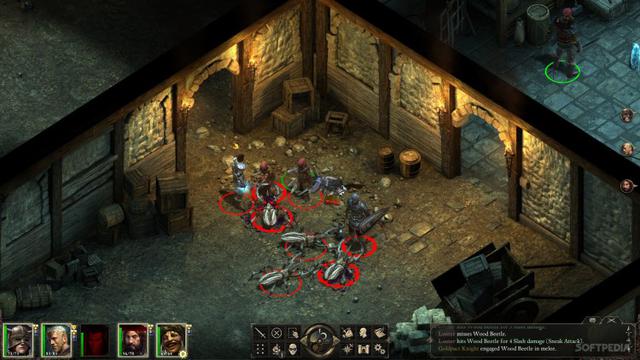
I really enjoyed Pillars of Eternity. It's a sort of spiritual successor to all of these isometric CRPGs like Baldur's Gate and the like. It irons out all of the kinks these games had, adding a few new touches of it's own. It is quite wordy and a lot is thrown at you in one go. I believe this puts a few players off, with a number of made-up fantasy words that assault the player through the text box. Nevertheless, this is perhaps as good as it gets for the isometric RPGs.
PoE1 puts you in the shoes of a watcher - someone who can see the souls of the dead. The game starts with some foreboding, then quickly ups the stakes with some good action, then simmering back down for some really good atmosphere. The isometric-ish 2D artwork is lovely, and the voice acting is quite good though all I can hear are the critical role folks in my head now, as oppose to the characters in the game!
The mechanics are not very simple to figure out. I didn't really care in the end - just putting points and levels into the things that took my fancy. There is a good video from GDC about how the team came up with the mechanics to avoid min-maxing amongst other things. It's a good watch and their reasons for doing what they did are ones I agree with - keeping the game balanced, realistic and challenging. The combat is real-time with pause, and you'll be using that pause a lot. Other skill checks are less frequent sadly, though there are some when it comes to thieving and dialogue.
Interestingly, PoE1 makes use of cut-scenes that look like the pages of a book, with a skill check or two thrown in. They add to the atmosphere but aren't really used enough in the first game. PoE2 would change that, bringing in more of these story-book elements which is a plus.
PoE1 shines in it's pacing I think; I finished the game when I was ready to finish. This is helped by the castle-management part of the game, which doesn't outstay it's welcome and throws interesting curve-balls just as you might be getting bored.
The setting of both PoE games is broadly fantasy but in a later period where firearms and cannons have been invented, which gives a nice twist. PoE2 leans into colonialism and privateering and all sorts of interesting areas. I've only just started PoE2. It didn't do too well on it's release but already I can see I'll be enjoying it. Management mechanics seem to have been enhanced, as does overworld travel, the graphics and the mechanics. I'm excited to see where PoE2 will take me. A life on the ocean waves.
Overall, I'd say PoE1 isn't for everyone. If you liked the old isometric CRPGS you'll probably like this one. I know that sounds like a bland thing to say, but PoE is a solid, modern take on a classic.
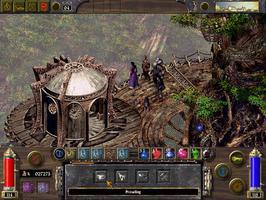
One of these classics that folks get angry over, Arcanum truly is a flawed gem of a game. It feels very much like Fallout 1 that came before, which is no suprise given the same people worked on both games (for the most part). Isometric (or cavalier projection I believe?), no classes but lots of skills and stats. It feels very familiar.
The setting is basically steampunk before steampunk was a thing. It's the game's strongest feature - the realisation of it's world. It's the little touches, such as the newspaper in the game appearing as a newspaper and not just text in the normal textbox as many games would do. It's the music that fits right in, the politeness of the NPCs and their modes of dress that spark visions of Victoriana. It's an interesting world to be in.
Sadly, it's downhill from here. The combat and mechanics are somewhat terrible. Points to level up skills and abilities are given out sparingly and you need a lot of them to do anything interesting. Like a few folks, I went for a gunslinger tech person and was horribly crippled, with guns costing loads to use, and doing almost no damage. This damages the story too; if guns changed everything in Arcanum, why are they less useful than swords? I just built molotov cocktails and spammed these as best as I could. Something about the character creation seemed lacking too. There are a few traits to choose from but so many character builds can't be leaned into. There might be one chance for your gambling character to shine, but that's your lot. I did, however, enjoy the idea of a stamina meter as oppose to any arbitrary cool-downs or 'mana bars' or anything like that. Swinging big swords or casting big spells drains your stamina. Makes sense and works well, at least until the AI messes up and your party healer keeps on casting heal until he passes out.
The dungeons you visit are all terrible, at least all the ones I got to. Endless, pointless corridors of hard enemies, with nothing to break up the monotony. I mean, why would anyone build such a thing in the first place? I began to feel my time was being wasted and I'm certainly not the only one. That's not a feeling you want with a game like this. It didn't need padding out any more. It has plenty of good stuff in there already. Some of the story beats like the conversation with the dwarven king are great, but it takes so long to get there. I wouldn't mind if it wasn't such a trudge, but it is.
Arcanum looks dated and even looked dated upon it's release. Isometric CRPGs were going out of fashion; Arcanum's graphics did little to reverse the idea that 2D was done and 3D was where it's at.
I can see why people defend this game. It's the same reason folks defend Firefly (which isn't that great - fight me internet! The ratings and reviews are on my side! :D). There are great ideas in there, and the beginnings of a world that might be quite the thing. People want it to be good, but these gems just don't hold together. The developers of Arcanum bit off more than they could chew and it's a real darn shame. A steampunk RPG released for tablets today, with this level of detail and world building would be snapped up by the truckload!
Both Chris Davis and Noah Gervais have good videos on this game. Definitely worth a watch.
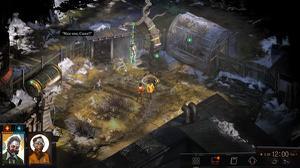
Released this year to critical acclaim, Disco Elysium has been compared to Planescape Torment in it's feel and brilliance. 'The highest possible praise indeed!' I thought. I was immediately intrigued by the art style, the premise and the mechanics of this one. I'm playing it with my wife at the moment and it's great! It's one of these games that does an excellent job of putting you in the shoes of a detective. The last time I felt this way was with Return of the Obra Dinn (which is also brilliant!). Obra Dinn made you feel like a detective indirectly. The puzzle you had to solve necessitated observation and piecing together of clues, with no hand holding. Disco Elysium relies on the choices you make within dialogues, with caveat that there will be consequences, to make you think carefully.
Disco Elysium uses a 3D character on painted 2D plane approach, very similar to that of Pillars of Eternity, harking back to these older RPGs. It's systems though, are quite different. There is no real combat to speak of. Instead, you have to deal with the rigours of police-work that take a toll on your mind and body. You can put points into any-one of 24 skills but beware that overusing a skill might be good in some cases but bad in others. For example, if you use your drama skill a lot your character will act more dramatically. Get really knowledgeable about drugs, and sure, you'll have less of the side-effects, but it'll dominate your thinking when you come to dialogues.
And that's the real joy of this game. Indulging in your own thoughts and skills has knock on effects. Failing a check has knock on effects. If you fail something, you can sometimes try again, or sometimes that route will be forever locked off from you. Unlike every other game on this list, you don't want to exhaust every single dialogue option.
The setting is unique, with a sort of deep south, French colonial inspiration, with some odd technology choices. The game isn't afraid of getting political either, with nods to modern day issues around neoliberalism, racism, feminism and all sorts of 'isms, beliefs and codes. Whether you indulge these ideas is up to you. One interesting mechanic is the thought cabinet. You can spend time thinking about a thing, which usually involves an impairment but once the thought is lodged in there, you get the full effects. It can be tricky to remove a thought once it's in there though and you aren't told in advance what the effects will be, which is great for immersion!
One criticism that sort-of holds up is that the game plays a little like a 'choose-your-own-adventure' book, and sometimes that's how it feels. You can't change your character's sex or name, though you do get to choose your starting stats. You occasionally get to make a check which results in success or failure. Modifiers are applied which come from many sources, including your character's previous actions which is great. Want to intimidate some wrong-uns in order to get information? Change your clothes and speak to someone with some leverage. You'll find the check a lot easier. Checks also appear in the middle of text boxes, but only if they've been passed. These typically offer extra avenues of inquiry or opportunities to have some sort of inner dialogue going.
The story seems quite well written, with a well realised world. It's no wonder really, given that the designer of this game is a writer by profession. Not only that, but the team behind this game are big pen-and-paper roleplayers. It's novel, deep and makes you feel like the beaten down, flawed police officer of your dreams. If you like a good story in your games, with some heavy reading, low-combat but high intensity, then this is your game!
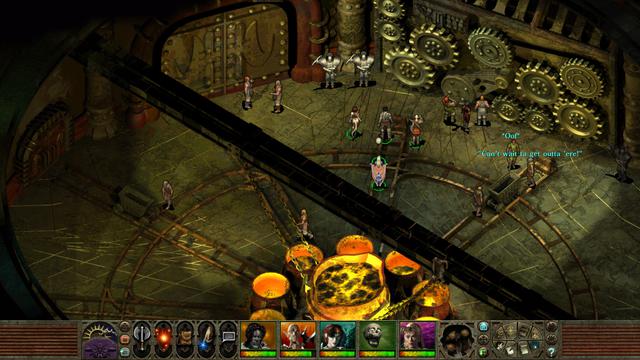
Some stories, whether they be in film, books, or CRPGs touch you deeply. You don't want the story to end. 'What happens to the characters now?' you might think? 'What could possibly beat that?' you might ask? Planescape Torment is one of these, not just for me, but a lot of people, judging by how often it tops 'best-of" lists'.
Planescape Torment's appeal lies in how it weaves an excellent story with gameplay. You play a character who wakes up with amnesia. It's an often used plot device, especially in games, but it works so well here. Planescape is a setting from Dungeons and Dragons and it's an odd one, by design. It mixes up it's fantasy in fun and interesting ways. Dragons could be bartenders, beholders working as tax collectors, Angels might not be trustworthy and some demons might do good. It subverts expectation at almost every turn. You learn about the new setting along with the character, The Nameless One.
Not only are you an amnesiac, but you are immortal. Feels like that'd take out all the challenge of the game right? Wrong! Planescape Torment almost plays you. You are made to feel the narrative weight of the choices you make through playing the game. The story manages to be both epic, and very personal, mixing in world changing stakes with the quietness of real forgiveness. You guide the Nameless One through the adventure in whichever way you choose, but the story is very much the Nameless One's journey. In a way, Planescape is both more and less than a traditional RPG. You can't name your character or change sex, or even change how your character appears but the game is setup so that playing an evil route is just as easy (or should I say accessible) as the good route. It invites you to choose and in so doing, is more of an RPG.
The player companions are a real treat; each one is flawed in a unique way that really leans into the setting. Without spoiling, several of the NPCs go against their supposed natures (as defined in, say, the D&D Monster manual), challenging what we think about them in creative ways. One character is a succubus who has taken a vow of chastity, running a private members club for intellectual stimulation. Throughout the game, they are verbally abused and distrusted, yet they persist.
Planescape Torment has been likened to the movie Citizen Kane, in that it's a classic everyone should experience and learn from, was revolutionary at the time, but is hard to access today. Thanks to the lovely folks at Beamdog, it is trivial to get hold of a copy and play, but there are some thing that are harder to change. The textbox is a bit too small for the sheer number of words it will through at you. Some more voice acting would have been great, the 3D graphics are quite dated, and the combat system is largely irrelevant. Some of the interface problems has been fixed in the enhanced addition but it's still a bit of a pain at times.
Torment's combat isn't really the focus. It exists and some of the spells are fun but it's not core to the experience. It's no worse than Baldur's Gate mind-you, and definitely a little more creative with it's tattoos instead of armour, weird exotic weapons instead of swords, and some funny special abilities. Nevertheless, it's the setting, story and gameplay rug-pulls you come here for.
Again, Noah Gervais has a good video on this, as does Chris Davis. Noah compares Planescape Torment to it's supposed spiritual successor, Torment Tides of Numenera but I honestly doubt this contender could come close. I think Disco Elysium is probably closer to the mark; future Planescape Torments will come from the left-field and surprise us no-doubt.
I doubt I'll ever be moved more by a game's story than by Planescape Torment. Everyone should play this.
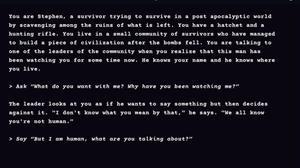
Perhaps the oddest game on this list, AI Dungeon 2 might very well be the future of roleplay games. Right at the beginning I said that a good RPG should be like an automated dungeon master? This is exactly what AI Dungeon 2 sets out to do. You are presented with a text box, some basic instructions and off you go. You type what you want to do and the computer replies. It's based on the OpenAI neural network GPT-2. This artificial intelligence was built to generate human like text from a small sample. Many fear it's use in fake news articles but one chap decided it'd make for a fun RPG, and it is!
There are no graphics per-se; it's a text box you type into. The AI returns some responses and the play continues. It feels very D&D like and I can see something like this being used in RPGs in the future. Where it seems to fail is a model of what is going on. There is no memory so to speak. The same goblins you killed might reappear in the dialogue later on for instance. That said, it's a tantalising glimpse into the future and definitely worth a play.
I started to play Undertale and it's rather good. I mean to finish it one day. It's one of these games that suits the switch quite well.
I've never played any of The Witcher games which I'm told are rather good. The certainly seem popular. The same goes for Skyrim and any of the Elder Scrolls series. I'm told that Morrowind is a good one to go for. Maybe I'll try that one day?
I used to be a big fan of Neverwinter Nights but mostly all the add-on and fan modules. I started playing the Darkness over Daggerford module but since DOS:2 entered my life I've not had the time.
Underrail is an interesting indie project that I quite liked, citing Fallout as an inspiration.
NEO Scavenger was fun for an hour or so. An interesting take on the genre, with attempting to survive and just get around. The main issue I had was having to repeat a lot of the beats every-time I died. Still, a great little title that shows us what the Fallout series really needs to be about.
Any of the Fallout's from 3 onwards really, with the exception of New Vegas. It seems the very soul of these games has been hollowed out and replaced with money grabbing.
I gave Wasteland 2 a good go, but the mechanics really got me down. I mean come on! I'm a strong character with a sledge. Do I really need to pump points into 'breaking open doors' as well? Not only that, one mission just took the piss with it's fetch questing, at which point I gave up playing. I personally feel it is over-rated. The interface is a bit problematic as well, taking many mouse clicks to perform a simple action. I wouldn't recommend it, as there are better games out there.
I tried to play Atom RPG and I'm still a bit undecided. It feels bland, largely because it's going for that realistic 3D view similar to Divinity Original Sin but without the latter's resources. I think this is a risk for developers as you need a really big team to pull that off. I like the setting - Russia as oppose to the USA for a change, but it didn't hold my attention.
I've taken you around the houses a bit, looking at a variety of RPGs I've played in the last two years or so and I think I can pull out some pointers:
These are pretty big asks in any game really. But I think even small teams can get close to this sort of thing. I haven't played Diaries of a spaceport janitor but it seems that you can do a lot with a little. Super realistic graphics or physics engines are not a requirement. Neither are a whole host of voice actors. I think these points can be realised with whatever resources one might have.
Combat is often emphasised in RPGs but I don't think it's strictly necessary - at least the sort of classic violence anyway. What is necessary is tension and release. A close run combat encouter, followed by the relief of a good story pay-off is a fine thing, but perhaps this tension can be created in other ways? I'm not opposed to combat in games at all. In fact I quite like some of the different approaches each of the games I've mentioned takes. Interesting combat in RPGs is not an easy thing to pull off and I'd love to see a bit more experimentation there. If you do remove combat though, I do think you need something to replace it.
Ultimately, we want that automated dungeon master feel. I suspect that's a long way off but we can get pretty close. Some of these games really draw you in and manage to achieve high levels of escapism. Games like AI Dungeon 2 have real potential but games that allow human dungeon masters, such as DOS:2, Neverwinter Nights and the like can give you some of that feeling right now.
Perhaps most important thing might be have a tale to tell. Whether that be Disco Elysium's questioning of philosophy, Planescape Torment's idea of forgiveness or Arcanum's magic versus technology, a good tale with deep roots is probably the key thing. This seems counter intuitive to having choice, of emergent play and what have-you, but some of the best games on this list give you freedom, but still get you to think and feel the underlying story. As any pen-and-paper dungeon master will tell you, players are responsible for the story, but the DM is responsible for the plot.
